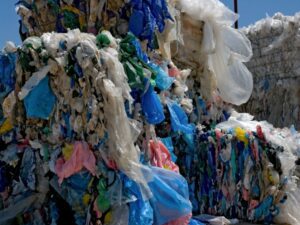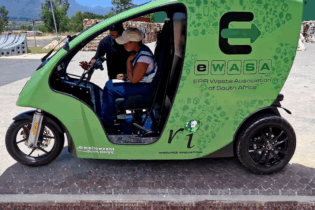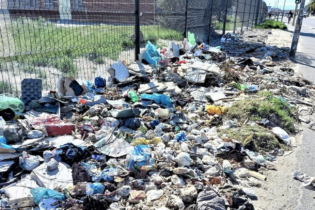The IFC – International Finance Corporation has provided Averda with a $30 million loan to support sustainable waste management in the Middle East and Africa. This loan is supporting the construction of a new plastics recycling plant in South Africa.
The ground-breaking agreement will help deliver climate-changing benefits through private-sector-led integrated waste management services. Part of this loan is already in use and is supporting several of Averda’s existing sustainable waste management projects in South Africa, Oman, and Morocco. “Locally most of the investment has been put into use in the construction of a new plastics plant in Rosslyn, Gauteng, South Africa, creating 50 new jobs,” said Chris O’Neill, Director at Averda South Africa. He adds that the loan will help them significantly accelerate other sustainable projects in allowing Averda to reduce the waste sent to landfills while increasing the volumes composted, recycled, and transformed into energy, progressing us towards a more circular economy. In an article written earlier this year by the Organisation for Economic Co-operation and Development (OECD), plastic pollution was growing relentlessly as global waste management companies and general recycling was falling short. In its report, it also pointed out the world was producing twice as much plastic waste as two decades ago, with the bulk of it ending up in landfills, incinerated, or leaking into the environment, and only 9% successfully recycled. “Through the new plant which will be operating by the end of the year, we aim to change this by processing up to 12,000 tons per year of High-Density Poly (HDPE) and Low-Density Polyethylene Ethylene (LDPE) by converting them back to reusable A-grade plastic pellets. With volume production commencing in Q1 2023,” explains O’NeillThese pellets will be used by Averda’s customers to remold or extrude new products. The plastic waste is collected from the waste sectors, and this may include Averda’s landfill sites.
This ‘recycling and re-using’ minimises the impact on carbon emissions as the Averda process essentially shreds the plastic waste and thereafter extensively washes it before extruding the plastic. O’Neill adds that they will also operate a Material Recovery Facility where source-separated recyclables will be further segregated, and from where some of the input plastics will derive, which will be used for the plastic plant. LDPE is frequently used in film applications and bag applications, but it can also be used to make wash bottles, containers, plastic extrusion, food storage containers, and rigid trays. As HDPE is the most widely used type of plastic, is perfect for the making of chemical containers as it has chemical-resistant properties. HDPE is great for laundry, shampoo, conditioner, household cleaning products, motor oil, antifreeze, and recycling bins. The strength of these bottles is increased when they’ve been coloured or pigmented. “Humankind is in a race to change the way we use our resources and it’s a race we can’t afford to lose. We are committed to our slogan of a “World without Waste” and that starts with recycling, which is both significant to people and the environment,” ends O’Neill.






